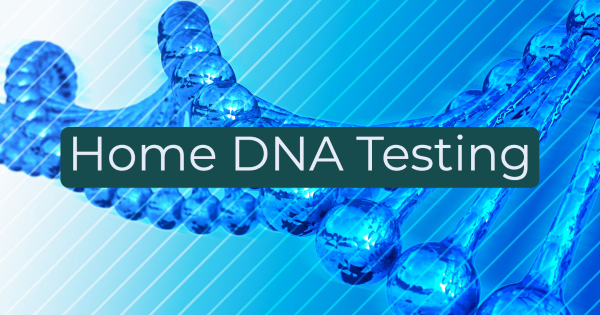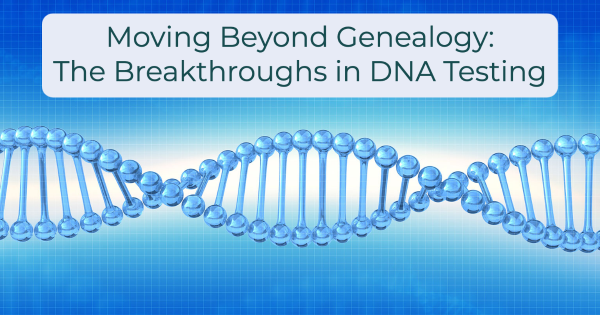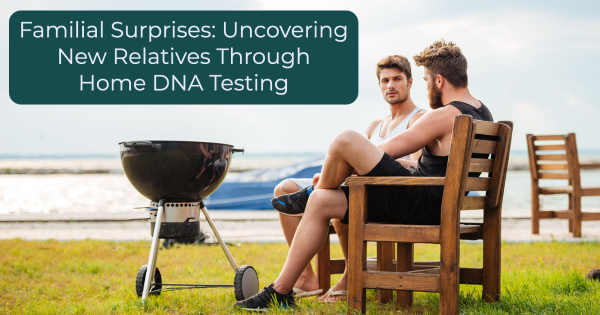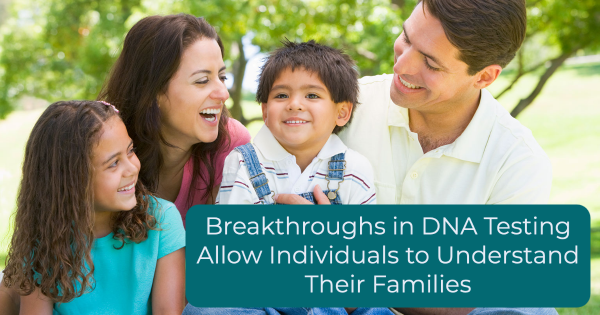
DNA once seemed very mysterious to the majority of Americans. Only relatively recently has DNA testing become a regular part of forensic and medical technology. For the most part, many people grew up thinking of DNA in conjunction with issues like paternity testing and criminal investigations. Even as late as the 1990s, forensic DNA evidence was difficult for juries to understand, and in turn the country at large. But more recently, DNA has not only become easier for people to process and trust; it’s also become more widely accessible on an at-home basis. This began in part with the commercialization of paternity testing. It became easy for people to take paternity tests at home, which inevitably did make settling domestic matters and issues of child support much simpler. But the ease with which people were able to take these kinds of DNA tests quickly made clear the fact that there were other opportunities available through at-home DNA testing. Therefore, ancestry home DNA testing kits became available. While these kits at first seemed to many like novelties, over the years they have become increasingly popular, and at present they can be used not only on a lark but to uncover family secrets and answer questions that people have been asking for their entire lives. Additionally, these tests are helping Americans better understand their genetic histories and the potential challenges they may present.

The more technical aspects of DNA testing services still take place in laboratories. But no longer do Americans need to have their DNA collecting at the doctor’s office or through testing facilities. Ancestry home DNA testing kits can be ordered online or bought at big box stores, and are fairly simple to use. Most of these will require one or multiple DNA samples in the form of saliva or a cheek swab. These samples can be sent through a pre-paid package to the testing lab, where they will be analyzed. Although some DNA testing services will send physical results back to clients, many more now take advantage of apps and websites, allowing people to access their results anywhere and everywhere. Although different DNA testing companies offer different focuses, the majority of them will offer break downs of an individual’s ancestral DNA, allowing them to understand where their ancestors hailed from. In some cases, this information can move back as far as the era of the caveman
It’s easy to understand why ancestry home DNA testing kits have a wide appeal. They allow people to explore where their families come from, which has always been interesting to individuals across the world. There is a level of fun inherent in discovering one’s genetic history, and the appeal is particularly potent to Americans. The United States is a relatively young country, and has long been known as a “melting pot”. This means that the majority of Americans are not descended from the first settlers or Native Americans, but rather immigrants that came to the country later and intermingled with other immigrants. Therefore, an American could easily have ancestral ties to Europe, Africa, Asia, and essentially almost anywhere in the world. But these kits offer more than the opportunity to learn about the extremely distant past. The first American company offering DNA testing for ancestry purposes launched its initial test kits in the spring of 2000, and since then it’s become clear that these kits enable people to explore their family histories in very revealing, and sometimes very intimate, manners.
Moving Beyond Genealogy: The Breakthroughs in DNA Testing

It seems as if there will always be new breakthroughs being made in DNA testing. But the popularity of ancestry home DNA testing kits have perhaps pushed some of these breakthroughs forward sooner than expected, especially for individual families. Initially, these kits were developed for genealogy hobbyists. For those unfamiliar with tracing genealogy as a hobby, this can be a bit confusing. But prior to the ease offered by DNA testing kits, tracing genealogy was a fun if time-consuming hobby that often involved unearthing hard copies of family trees and piecing together histories like they were puzzle pieces.
This presented many challenges, which is why FamilyTreeDNA was founded by Bennett Greenspan. The initial goal was to appeal to people interested in family trees on a serious level. Not only did the ancestry home DNA testing kit make tracing genealogy easier, allowing people to eventually log into online accounts and connect with distant relatives in DNA databases; it also improved the accuracy of their family trees. There is a reason why DNA is so heavily relied upon in the world of criminal law. Very rarely are DNA tests incorrect, while traditional family trees can be complicated not only through mistakes and confusion, but outright lies as well.
The reality is that the more people become aware of DNA testing and the more that people add their genetic information to online databases, the more the accuracy of family trees will be enhanced. This means that family secrets have inevitably been unearthed through ancestry home DNA testing kits. Many individuals that have not necessarily been seeking to uncover family secrets have unexpectedly discovered them while simply attempting to understand their heritage. If an individual attempts to connect with a parent on an online DNA database, for example, and there is no genetic match to that parent; there are understandably some questions that may come to light.
People are also discovering secrets within their families that may trace back further. Due to racial tensions that have been systemic within the United States for centuries, many individuals chose to “pass” as white in the past, marrying into white families while keeping their actual racial identities a secret. Ancestry home DNA testing kits make it impossible for families to avoid these realities, though they may come as a shock to some. The reality is that for a variety of reasons, both personal and practical, many family trees have inaccuracies within them. The breakthroughs presented by home DNA testing kits correct those inaccuracies, but not without a degree of surprise and sometimes conflict. Conflicts can be especially challenging when issues like estate planning come into play.
But as shocking as these DNA test results can sometimes be, they also present people with the opportunity to make important connections and to uncover information that they need and deserve to know. Additionally, this type of information may allow individuals to make more informed decisions about their health in the future.
Familial Surprises: Uncovering New Relatives Through Home DNA Testing

It is not difficult to uncover stories regarding newfound relatives when researching different ancestry home DNA testing kits. Regardless of the type of kit used, and there are many on the market at present, many Americans have discovered newfound siblings through the use of these services. One story has five siblings realizing through 23andme that they all shared the same biological father.
Though this kind of discovery can inevitably cause some stress and emotion, it doesn’t have to be negative. Many people appreciate the fact that they have been able to expand their families, and open their arms to each other. These kinds of secrets being uncovered also reveals the true extent of genetic connections. In the story of the five siblings, all of those involved loved animals. Oftentimes, people are confused about how these connections can go unknown for so many years, but unfortunately this issue is more common than one might think. Some men are not aware of the fact that they sired children in the first place; others may be aware of the existence of their children, but due to a variety of issues, do not outwardly recognize those children. At times, tense child custody cases can push one parent out of a child’s life when that child is young, making it easy for relatives to lose track of each other.
While infidelity or familial strife can sometimes be the cause of these missed connections, that is not always the case. Some individuals are tracing their DNA with the specific purpose of finding relatives that they know are out in the world, but unknown to them. One of the major reasons why individuals may not know their biological relatives is that they were conceived through sperm or egg donation. As medical care for infertility becomes more advanced, this is in turn becoming increasingly common. Sperm donation is more common than egg donation, but both procedures can be done. Children will be raised by their legal parents, but will usually not know their biological mother or father that donated genetic material. While this does not necessarily bother many children, they may be curious about their genetic histories and wish to know more. DNA testing kits can allow them to not only track down their biological parents, but genetic half-siblings as well.
Another major reason why people pursue ancestry DNA home testing kits is that they have been adopted. The degree to which an adopted individual may know about their biological parents can range greatly depending on the type of adoption that was conducted. While some people are adopted as children or even teenagers, others are adopted in infancy or at birth, and therefore have no memories of their biological parents. Some biological parents agree to open adoptions, in which they are somewhat involved in the lives of their biological children and often communicate through letters, phone calls, or even visits on a regular basis. Other adoptions are semi-open, in which information is available or periodically shared, but visits are infrequent if they happen at all during the child’s youth. Other adoptions are closed, in which there is no communication available, and at times even the identity of the biological parents is kept legally sealed.
Sometimes, there is only so much that an individual can learn through working with adoption lawyers, especially in terms of information regarding biological fathers. Ancestry home DNA testing kits can help people that were adopted track down information about their biological parents, as well as any siblings they may have. This can also be helpful in that many adoptees know very little about their genetic histories and medical records. Being able to learn about this type of information independently can help them greatly.
Important Information: Understanding Health Issues Through DNA Testing

Today, many ancestry home DNA testing kits allow clients to understand more than simply their genetic histories. They also allow them to be more informed about their health and indeed the health services they should focus on. While many people have fairly comprehensive family medical histories available to them, they may not be able to understand how much of their family medical history was genetic, and in turn how much of that genetic component was passed on to them from their parents.
It’s important to understand that carrying a certain gene or mutation does not necessarily guarantee that an individual will have a disease associated with that gene or mutation. But the more that a person knows about their health, the more that they can do to preventatively ensure that they are as healthy as possible. Therefore, many home DNA testing kits now offer components in which people can test for different genetic traits, which might reveal more of a propensity for developing cancer, diabetes, and other health conditions. While the prospect of testing for these traits can be intimidating, individuals can take this individual and ask their doctors about warning signs they should be aware of. Additionally, becoming more information about such issues will allow these individuals to make different decisions regarding their diet and exercise habits, as well as the health screenings they undergo, than they might otherwise have made.
Although undergoing any kind of genetic testing, even home testing, can present certain challenges and perhaps even uncover secrets, many have benefits from DNA testing being made more widely available. Perhaps what is most important is that this information allows individuals to have more information about themselves, which in the long term yields effects more positive than negative.
